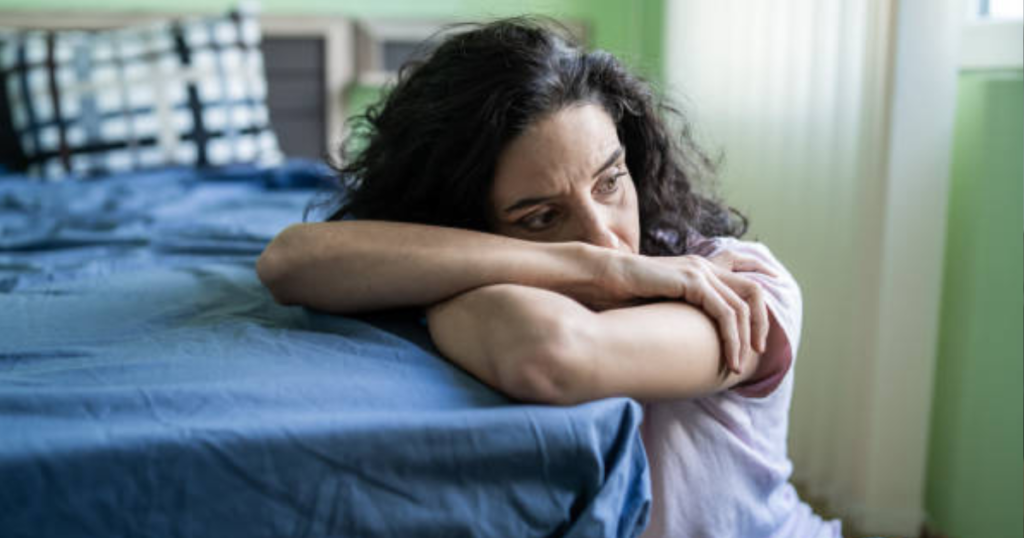Chronic and Acute Depression: Causes, Symptoms, and Treatments

Depression can manifest differently in each person. For some, it might be a long-lasting condition with mild but persistent symptoms that endure over several years. Conversely, others may encounter a sudden and severe onset of depressive symptoms, whether or not linked to particular situations.
What is depression?
Depression is a prevalent mood disorder characterized by profound feelings of sadness and a notable absence of interest or pleasure in everyday activities. It affects a person’s behavior, thinking patterns, and emotional experiences. While a permanent cure for depression does not exist, it is a highly treatable mental health condition. Many individuals effectively manage their symptoms, enabling them to maintain their functionality and find enjoyment in life.
What are the differences between chronic and acute depression?
Chronic depression and acute depression are two distinct forms of the mental health condition, each with its own characteristics and manifestations.
Chronic depression, also known as dysthymia, is characterized by persistent, long-term symptoms that often persist for years. Individuals with chronic depression experience a consistent, low-level depressive mood, which can become a part of their daily lives. These symptoms may not be as severe as those seen in acute depression, but they are long-lasting and tend to linger. It can be challenging for individuals with chronic depression to experience joy or interest in activities they once enjoyed. This form of depression can significantly impact their overall quality of life and functioning.
On the other hand, acute depression, also referred to as major depressive disorder, is marked by intense and severe symptoms that arise suddenly. It may be triggered by specific events or circumstances, but not always. Acute depression often involves a notable disruption in mood, energy levels, appetite, sleep patterns, and concentration. Individuals with acute depression may experience overwhelming feelings of sadness, hopelessness, or despair. This form of depression can be more debilitating and may require immediate intervention and support.
While chronic depression is characterized by persistent but milder symptoms over an extended period, acute depression is characterized by severe symptoms that appear suddenly and may be more short-lived. It is important to note that both forms of depression can be equally serious and should be addressed through appropriate treatment and support.
What are the symptoms of chronic and acute depression?
Depression is a complex mental health condition that affects millions of people worldwide. It can manifest in various ways, and its symptoms can vary from person to person.
Symptoms of chronic depression may include:
- Persistent feelings of sadness or emptiness.
- Loss of interest or pleasure in most activities.
- Fatigue or low energy levels.
- Changes in appetite or weight (either increased or decreased)
- Sleep disturbances (insomnia or excessive sleep)
- Difficulty concentrating or making decisions.
- Feelings of hopelessness or pessimism.
- Irritability or restlessness
- Low self-esteem or feelings of worthlessness.
- Social withdrawal or isolation.
- Physical symptoms like headaches or stomachaches that do not have a clear medical cause.
- Lack of motivation or productivity.
Symptoms of acute depression (major depressive disorder) may include:
- Intense feelings of sadness, despair, or hopelessness.
- Loss of interest in or pleasure in activities previously enjoyed.
- Significant changes in appetite or weight.
- Sleep disturbances (insomnia or excessive sleep)
- Fatigue or loss of energy
- Difficulty concentrating, making decisions, or remembering things.
- Feelings of guilt or worthlessness.
- Restlessness or slowed movements.
- Thoughts of death, suicide, or suicide attempts.
- Physical symptoms such as headaches, stomachaches, or body aches.
- Increased irritability or agitation.
- Social withdrawal or isolation.
What causes depression?
Depression is a mental health disorder that can have a profound impact on a person’s well-being and daily functioning. While the exact causes of depression are not fully understood, there are several factors that have been identified as potential contributors.
Biological Factors
Imbalances in certain brain chemicals like serotonin, norepinephrine, and dopamine are believed to play a role in depression. Additionally, genetic predisposition and a family history of depression can increase the risk.
Life Events
Traumatic experiences, such as the loss of a loved one, relationship difficulties, financial problems, or job loss, can trigger depressive episodes. Major life transitions, such as divorce, retirement, or moving to a new place, can also contribute to the onset of depression.
Chronic Illness or Pain
Managing a chronic illness or experiencing persistent physical pain can take a toll on a person’s mental well-being and increase the risk of developing depression.
Childhood Adversity
Early life experiences, such as neglect, trauma, or significant disruptions in family dynamics, can have long-lasting effects on mental health and increase vulnerability to depression later in life.
Personality Factors
Certain personality traits, such as low self-esteem, pessimism, or a tendency towards excessive worry or rumination, can make individuals more susceptible to developing depression.
Unhealthy Lifestyle
Excessive alcohol intake and other unhealthy behaviors can contribute to the development of depression. They may initially provide temporary relief from emotional distress but can worsen depressive symptoms in the long run.
What are the types of depression?

Depression has various types, each presenting unique characteristics and manifestations. By understanding the different types of depression, individuals and healthcare professionals can enhance their knowledge of this condition and develop more targeted approaches for diagnosis and treatment.
Major Depressive Disorder (Clinical Depression)
This form of depression involves persistent feelings of sadness, loss of interest, and a range of physical and cognitive symptoms that significantly impact daily life.
Persistent Depressive Disorder (Chronic Depression)
Individuals with this type of depression experience a long-lasting depressive state, typically lasting for two years or more. Symptoms may be less severe compared to major depressive disorder, but they are persistent over an extended period.
Disruptive Mood Dysregulation Disorder
This type is specific to children and is characterized by severe irritability and frequent temper outbursts. Children with this disorder may experience chronic irritability rather than predominant sadness.
Premenstrual Dysphoric Disorder
This condition involves mood symptoms that occur cyclically and are closely tied to the menstrual cycle. Individuals may experience severe mood swings, irritability, sadness, and physical discomfort in the days preceding menstruation.
Depressive Disorder Related to a Medical Condition
Some physical illnesses or conditions, such as cardiovascular disease or hypothyroidism, can contribute to the development of depression. The depressive symptoms arise as a result of the underlying medical condition.
Seasonal Affective Disorder
This type of depression is linked to seasonal changes, most commonly occurring during the winter months when there is reduced sunlight exposure. Individuals may experience low mood, increased fatigue, and changes in appetite and sleep patterns during these seasons.
Perinatal Depression
Occurring during and after pregnancy, perinatal depression affects both mothers and fathers. It involves persistent feelings of sadness, anxiety, and fatigue, which can significantly impact the well-being of the individual and the family unit.
Atypical Depression
Atypical depression is characterized by variations in typical depressive symptoms. Individuals may experience mood reactivity, increased appetite, excessive sleep, and a feeling of heaviness in the limbs.
What are the treatments for chronic and acute depression?
When it comes to treating both chronic and acute depression, various therapeutic approaches can be effective in managing symptoms and improving overall well-being. The following treatment options are commonly utilized:
Psychotherapy (Talk Therapy)
Psychotherapy, such as cognitive-behavioral therapy (CBT), interpersonal therapy (IPT), or psychodynamic therapy, is widely used in the treatment of both chronic and acute depression. These therapy modalities aim to explore and address underlying causes, negative thought patterns, and develop healthier coping mechanisms to manage depressive symptoms effectively.
Oral Treatments
Antidepressants are often prescribed to individuals with chronic or acute depression. Oral treatments can help balance brain chemicals and alleviate depressive symptoms. It is important to work closely with a healthcare professional to find the right oral treatment and dosage that work best for each individual.
Combination Therapy
In some cases, a combination of psychotherapy and oral treatments may be recommended for individuals with chronic or acute depression. This approach can provide a comprehensive and synergistic treatment effect by addressing both the psychological and biological aspects of depression.
Lifestyle Changes
Making positive lifestyle changes can play a significant role in managing depression. Regular exercise, maintaining a balanced diet, getting adequate sleep, and reducing stress through relaxation techniques or mindfulness practices can all contribute to improving overall well-being and reducing depressive symptoms.
Support Network
Building a strong support network is crucial for individuals with chronic or acute depression. Seeking support from loved ones, joining support groups, or participating in group therapy can provide a sense of understanding, encouragement, and validation.
Self-Care Practices
Engaging in self-care activities is essential for individuals with depression. This includes practicing good self-care habits, engaging in activities that bring joy or relaxation, setting boundaries, and prioritizing one’s emotional and physical well-being.
Ongoing Monitoring and Maintenance
Regular follow-up with healthcare professionals is essential to monitor progress, adjust treatment if needed, and ensure ongoing support. Long-term management of chronic depression or prevention of recurrent acute episodes often involves maintaining healthy habits, managing stress, and seeking help when needed.
If you are dealing with chronic or acute depression, visit Mindshift Psychological Services. Check out their website to learn more about their different treatment programs for depression. Contact them at (714) 584-9700 to schedule an appointment.



